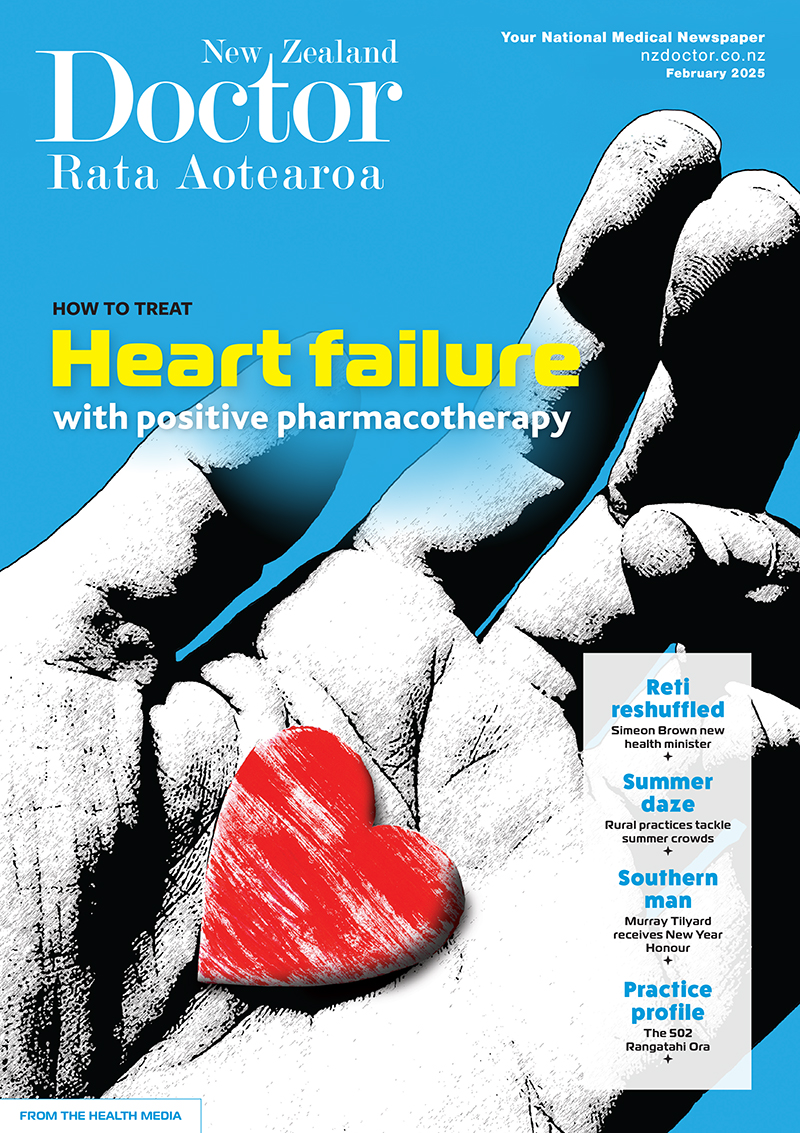Pharmacist prescribers Linda Bryant and Leanne Te Karu discuss positive polypharmacy for heart failure. Current evidence shows the intensive implementation of four medications offers the greatest benefit to most patients with heart failure, with significant reductions in cardiovascular mortality, heart failure hospitalisations and all-cause mortality
Otago institutions progress plans for a virtual centre for rural health education
Otago institutions progress plans for a virtual centre for rural health education

Three Otago institutions are working together to improve the future of rural health care in New Zealand, progressing plans for a virtual centre for rural health education.
Based on a spirit of collaboration, the University of Otago, Otago Polytechnic and Central Otago Health Services Limited have signed a memorandum of understanding on rural health care practice, service, education and research.
University of Otago Division of Health Sciences Pro-Vice-Chancellor, Professor Paul Brunton, says the new relationship is exciting on its merits, but the future prospects it promises are of even greater interest.
“We believe that a lot more health professional education and research should be undertaken in rural areas and we see this memorandum as a logical step towards that greater goal. By its very nature this is a deeply collaborative exercise and our three organisations are formalising that collaboration now.”
The partners are looking to work in collaboration with other key stakeholders in rural health throughout the country undertaking education and research in the sector, Professor Brunton says.
“While this project begins with Otago-based partners, the aim is to contribute to the development of capability and capacity within the rural sector nationally as it evolves and develops. Several of the programmes that will be part of this initiative already have national and international rural health connections.”
The memorandum, signed recently by the three parties, is an understanding the institutions will not only continue their strong existing collaborations in rural health, but also collaborate significantly more in the future, with a singular goal of improving rural health care in New Zealand.
Existing areas of collaboration include clinical placements, rural health research, postgraduate education and vocational training and professional development activities.
It is anticipated future collaborations will be identified by a newly-established task force made up of representatives from each organisation.
While those new collaborations will be a major step towards improving rural health care, the bigger goal is for this to become a component of a larger virtual health entity with wider connections across New Zealand’s rural health sector.
This reflects the University of Otago and Otago Polytechnic’s commitment to embed health professional education in rural communities and may become a model for engagement with other rural communities.
It will also help set up the University and Polytechnic to play a leading role in national rural health initiatives as they evolve.
Otago Polytechnic Head of College for Nursing, Midwifery, Occupational Therapy and Sports Institute, Ian Crabtree, says while the long-term goal is both ambitious and forward-thinking, that is in keeping with the collaborative philosophy for which the South and its people have become known.
“This collaboration allows undergraduate health professionals from across organisations to work together in providing healthcare for the rural population of Otago. This will give health professionals opportunities to work with and learn from each other with the ultimate goal of contributing to improved patient outcomes as well as inter-professional education and practice.”
Central Otago Health Services Chief Executive Kathryn de Luc says the potential benefits for such a “ground breaking” initiative were considerable and stretched far beyond the three organisations.
“We are very excited to be a partner in this ground-breaking initiative. It reflects a longstanding commitment by COHSL to the development of rural health as a discipline.
“This MOU reflects our desire for a long-term partnership to ensure rural health care can be delivered sustainably both for the local communities COHSL serves, but also for the benefit of all rural communities.
“Providing rurally-focused clinical career pathways will help ensure there is an ongoing supply of high-trained clinical staff working rurally in the future.”



